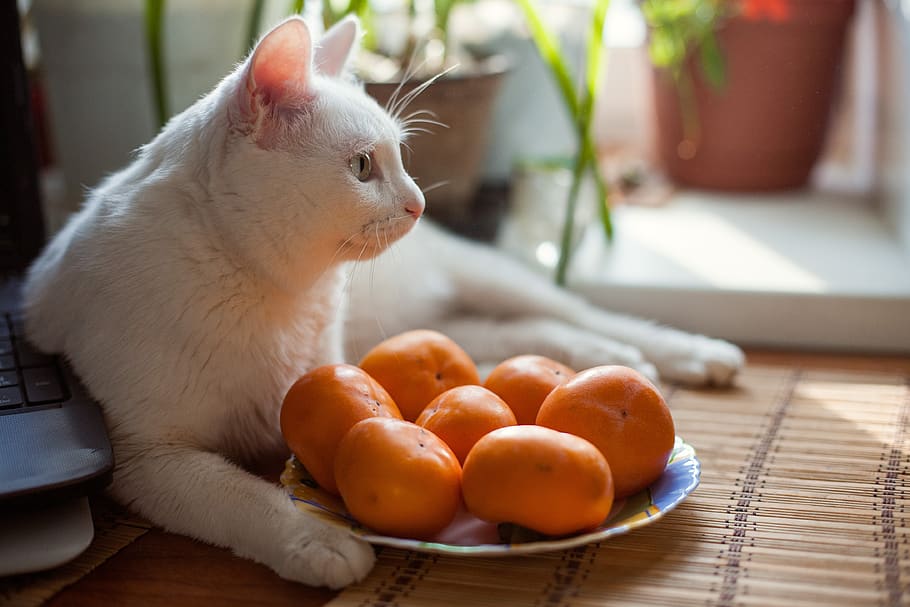My question is Can Cats Eat Oranges? and the answer is
Can Cats Eat Oranges? Blueberries are a sweet superfood for humans, but you will be surprised to find that they also have health benefits for cats. Just like raspberries, bananas have high natural sugars and carbohydrates, which can be fatal in cats if consumed too much. Blueberries may not be safe for your cat to eat due to their high sugar content and fructose syrup content, but they do not need to be consumed. Ripe fruits like bananas are not available, and ripe fruits like bananas are not only healthy for you and your cats, but also safe for cats.
This can lead to illness of your cat and even to a rapid development of kidney failure, which in some cases can lead to death.
Eating orange is rarely fatal for cats
Fortunately, this disease is rarely fatal, but remember that eating orange is rarely fatal for cats, and it is more likely that your cat will have only an upset stomach. If you have found a way to attract or eat oranges or other citrus fruits from your cats and eat them, it is definitely worth mentioning.
If you have a cat or dog, it is a good idea to know that oranges are also bad for your dog. While dog food is not toxic to cats, cats need a very different amount of nutrients than dogs. If your cat is soaked in oranges, carrots or sweet potatoes, it cannot produce the vitamin A it needs to meet its needs.
Give your cat other fruits
Instead of oranges, you can give your cat other fruits that are beneficial for her health, such as apples, pears, cherries, peaches, applesauce and bananas. If you still want to feed a cat a fruity treat, you should be aware that plenty of fruit is absolutely safe for your cat friends. Your cat will love it and can also get fleshy fruits like apricots, which are packed with potassium and beta-carotene.
Apples are an excellent source of antioxidants and fiber, but you should only feed them to your cat in small portions. However, the seeds contain amygdalin, which breaks down cyanide, so ripe fruits such as apples are safe to eat for your cats and should only be fed in a small portion.
Orange and its symptoms are unusually severe
If your cat happens to eat an orange and its symptoms are unusually severe and persist for a day or two, there is no reason to take it to the vet. Some cats are more sensitive than others, but oranges are no big deal to your furry friend. One of the chemicals that is great for you but useless for cats is beta-carotene, which gives oranges their bright color.
If you are concerned that your cat has ingested a potentially toxic fruit or vegetable, contact your local poison control center or seek veterinary advice. If you, as your veterinarian advises, make your cats vomit after they have eaten an orange, consult the veterinarian before giving them any form of cheese or even a treat to ensure that they have no other health problems that prevent proper digestion. They can also visit a veterinarian to take precautions, such as feeding them a very small amount of bananas if they have adverse effects.
There have been isolated cases of toxicity in cats, but it is recommended that cats do not eat grapes and seek veterinary advice when consumed. Talk to your veterinarian before giving a cat fruit so that it does not get too much or too little of a particular fruit or vegetable such as grapes.
Fruits from the citrus family
Fruits from the citrus family, such as oranges, are noted as food that is at least slightly toxic to cats. Some fruits, including grapes, raisins, citrus fruits and cherries, are toxic to cats, so they should never be eaten by cats, and most cats probably won't be interested. Although some citrus fruits are toxic to dogs and cats (e.g. oranges and lemons), some fruits are also considered edible to cats.
Also feeding cats large amounts of fruit can have a laxative effect due to the high fiber content. If you feed your kittens excessive apples and allow them to drink plenty of apple juice, they may find it harder to eat other foods.
Conclusion
Therefore, you should not give your cats oranges or other citrus fruits, but if your cat is one of them, try not to give them oranges. You will be fascinated by what you want to eat and share, especially if you enjoy oranges and orange juice. There is no more enticing food in the world than oranges, much of which can knock over a cat's belly. Oranges have advantages for cats and should therefore not be given to cats.
